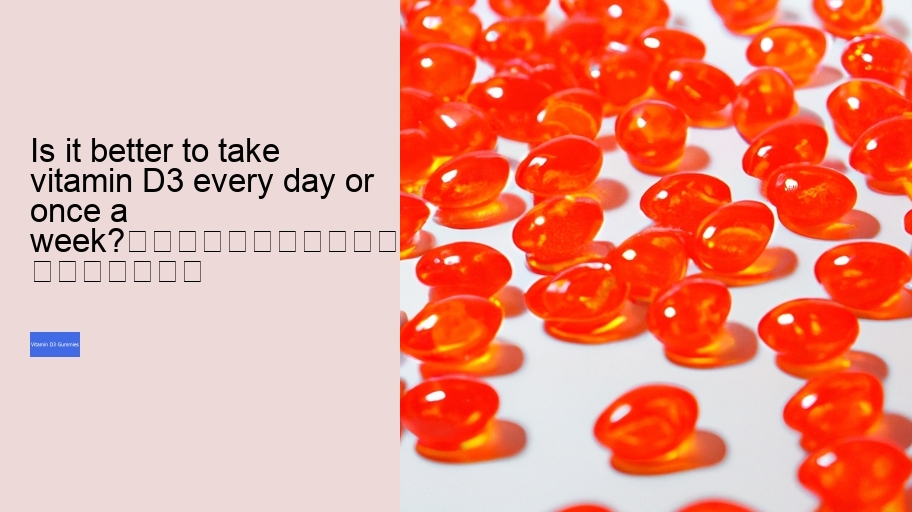
Vitamin D plays a pivotal role in mood regulation, often overlooked.
Vitamin D3 gummies are effective for individuals with deficiencies or limited sunlight exposure, as they provide a convenient way to supplement this essential nutrient, supporting bone health and overall well-being. However, effectiveness may vary based on individual needs and absorption rates. It's essential to follow recommended dosages.
Adequate vitamin D levels are important for mood regulation, and addressing a deficiency may contribute to improved mood, but it's not a direct mood-boosting supplement. Other factors also play a significant role in mood and emotional well-being.
While vitamin D plays a role in mood regulation, it doesn't directly make you happier. Maintaining adequate vitamin D levels may help support emotional well-being, but overall happiness depends on various factors, including individual circumstances and mental health.
Vitamin D3 is essential for overall health, but it does not have direct anti-aging effects on appearance. Its benefits primarily relate to bone health, immune function, and overall well-being, rather than influencing one's physical appearance or age.
Vitamin D3 is generally safe for most people when taken within recommended doses. However, individuals with specific medical conditions or medications should consult a healthcare provider before supplementing, and regular monitoring is essential to prevent potential toxicity.
Vitamin D deficiency may be associated with anxiety in some cases, but it is not a direct cause of anxiety. Maintaining adequate vitamin D levels through supplementation or sunlight exposure may help alleviate some anxiety-related symptoms, but it's not a guaranteed cure for anxiety disorders.